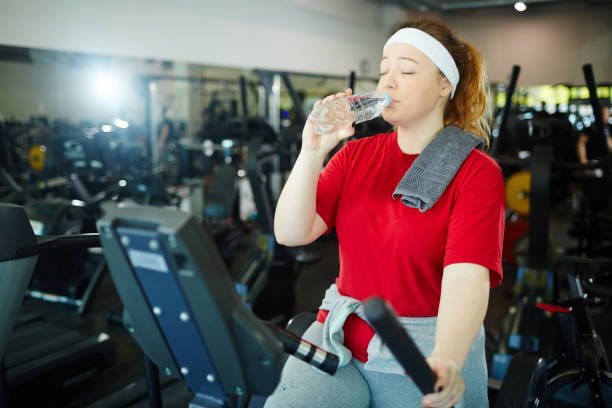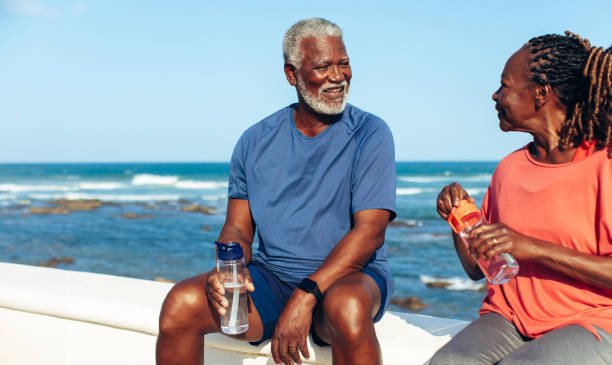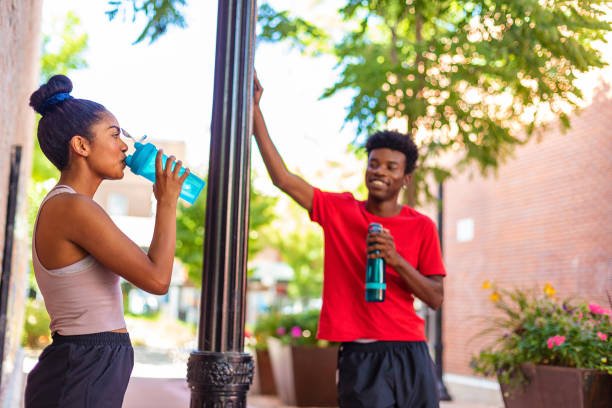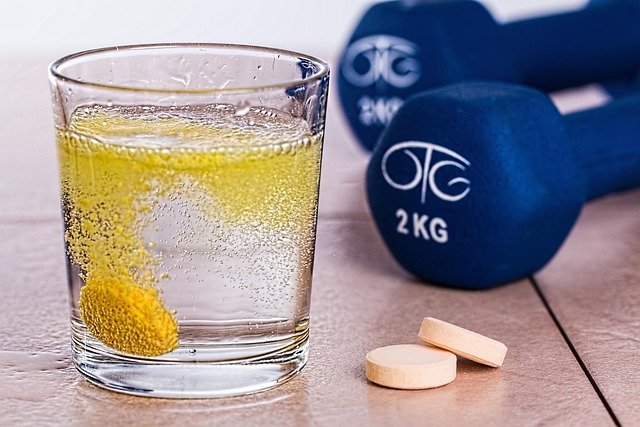I used to ignore water.
Not on purpose. Just… forgot. I’d roll out my yoga mat, blast some music, get through 30 minutes of jumping, sweating, almost dying—and realize I hadn’t taken a single sip. Then I’d feel off. Not exhausted exactly. Just foggy. Dizzy, maybe. Muscles a little tight. Thought it was just part of working out.
It wasn’t.
Turns out, not drinking enough before, during, and after exercise can mess with everything—from your energy to your progress.
Let’s talk about hydration. Not in a “drink 8 glasses a day” kind of way. But like, why it actually matters when you’re trying to lose weight, work out at home, and not feel like garbage after 20 squats.
Before You Work Out: Water’s Not Just a Bonus
So here’s the thing. When you wake up in the morning, you’re already slightly dehydrated. Even if you feel fine. Your body loses water overnight—through breathing, sweating (yes, even if you’re not soaked), and just existing. So if you’re one of those people who rolls out of bed and goes straight into a workout without drinking anything… yeah, you’re starting at a disadvantage.
Why it matters:

- Performance drops: Even a little dehydration can drop your physical performance. You might feel sluggish, your coordination might suck, and you’ll fatigue faster.
- Heart rate spikes: Your heart has to work harder. Not in a good “I’m getting stronger” way—but more like “why do I feel out of breath already?”
- Fat burning slows: Yup. Your metabolism doesn’t work as efficiently when you’re low on fluids. Not great if you’re trying to lose weight.
What to do:
Drink a glass of water 30–45 minutes before your session. Just a normal-sized glass (like 12–16 oz). Doesn’t need to be fancy. You don’t need lemon or Himalayan salt or whatever TikTok told you. Just water.
During Your Workout: Don’t Wait Till You’re Thirsty
Here’s a weird thing I learned the hard way: if you wait until you feel thirsty during a workout, you’re already behind.
Thirst kicks in late. Your body’s been trying to drop hints before that—dry mouth, fatigue, maybe even that annoying cramp in your side.
Why sipping matters:
- Sweat = water loss. Even if you’re doing light cardio at home, you’re losing water. Probably more than you think.
- Electrolyte balance shifts. Water helps keep things like sodium and potassium in check, which your muscles kinda need to work properly.
- Brain fog sets in. You ever feel weirdly clumsy mid-workout? Like, can’t focus? Hydration affects your brain too.
What I do:
I keep a bottle nearby. Not one of those huge gallon jugs (though if that’s your vibe, go off). Just something I can reach for between sets. I take small sips—not gulps—every 10 minutes or so. Especially if I’m sweating a lot. And if I’m doing anything longer than 45 minutes? I add a pinch of salt to my water. Sounds gross, I know. But it helps keep electrolytes balanced. I swear it made a difference.

After the Workout: Recovery = Rehydration
Here’s where I messed up the most.
I used to think, “Cool, I finished. I’m done.” And then go make coffee. Or worse—skip fluids entirely and eat a salty snack. I’d feel drained for the rest of the day. Muscles sore in a not-so-fun way. And hungry. Like bottomless-pit hungry.
Here’s what I didn’t realize:
Post-workout hydration is part of recovery.
When you exercise, you’re not just burning calories. You’re breaking down muscle fibers, losing fluids, using up nutrients. Rehydrating helps:
- Rebuild muscles. Water transports nutrients. Your protein shake won’t help much if your body can’t move those amino acids to the muscles that need them.
- Flush out waste. Exercise creates metabolic byproducts—stuff your body needs to get rid of. Water helps with that.
- Reduce soreness. Hydrated muscles recover better. Simple as that.
- Curb crazy hunger. Sometimes what feels like “post-workout starvation” is actually dehydration in disguise.
How much to drink after?
Start with another glass (again, 12–16 oz) within 30 minutes. Then just listen to your body. If your pee is dark yellow, you probably need more. If it’s clear, you’re good. No need to overthink it.
What About Sports Drinks?
Honestly? For most home workouts, you don’t need them.

Unless you’re working out hard for over an hour (think HIIT, non-stop dancing, heavy lifting), plain water does the job. Sports drinks add sugar, which isn’t always helpful if you’re trying to lose weight. Plus, they can create a weird dependency. You don’t want your 20-minute stretch session to feel like it needs neon Gatorade.
If you want something extra, try:
- Water with a squeeze of lemon.
- A pinch of sea salt and a bit of honey (DIY electrolyte).
- Coconut water (unsweetened).
But again—only if you feel like your body needs it. Don’t fall into the marketing trap.
You feel it. Maybe not immediately, but it shows up.
- You plateau. You’re doing all the work, but not seeing the results.
- You feel wiped out all day.
- You get random headaches or lightheaded spells.
- Your mood sucks. (Seriously, dehydration affects serotonin too.)
- You crave junk. Dehydration can make you feel hungrier than you are.
I’ve had days where I crushed my workout, ate clean, and still felt like trash. The missing piece? Water.
Final Thoughts (Not Preachy, Promise)
Hydration isn’t some trendy thing. It’s one of those boring, unsexy basics that actually moves the needle.
And if you’re working out from home, trying to lose fat, and build that body you keep dreaming about—water is part of the deal. It doesn’t need to be complicated. You don’t need a chart or a smart bottle. Just… remember to drink. Before. During. After.
You’ll feel the difference. Maybe not on day one. But give it a week. Seriously.


